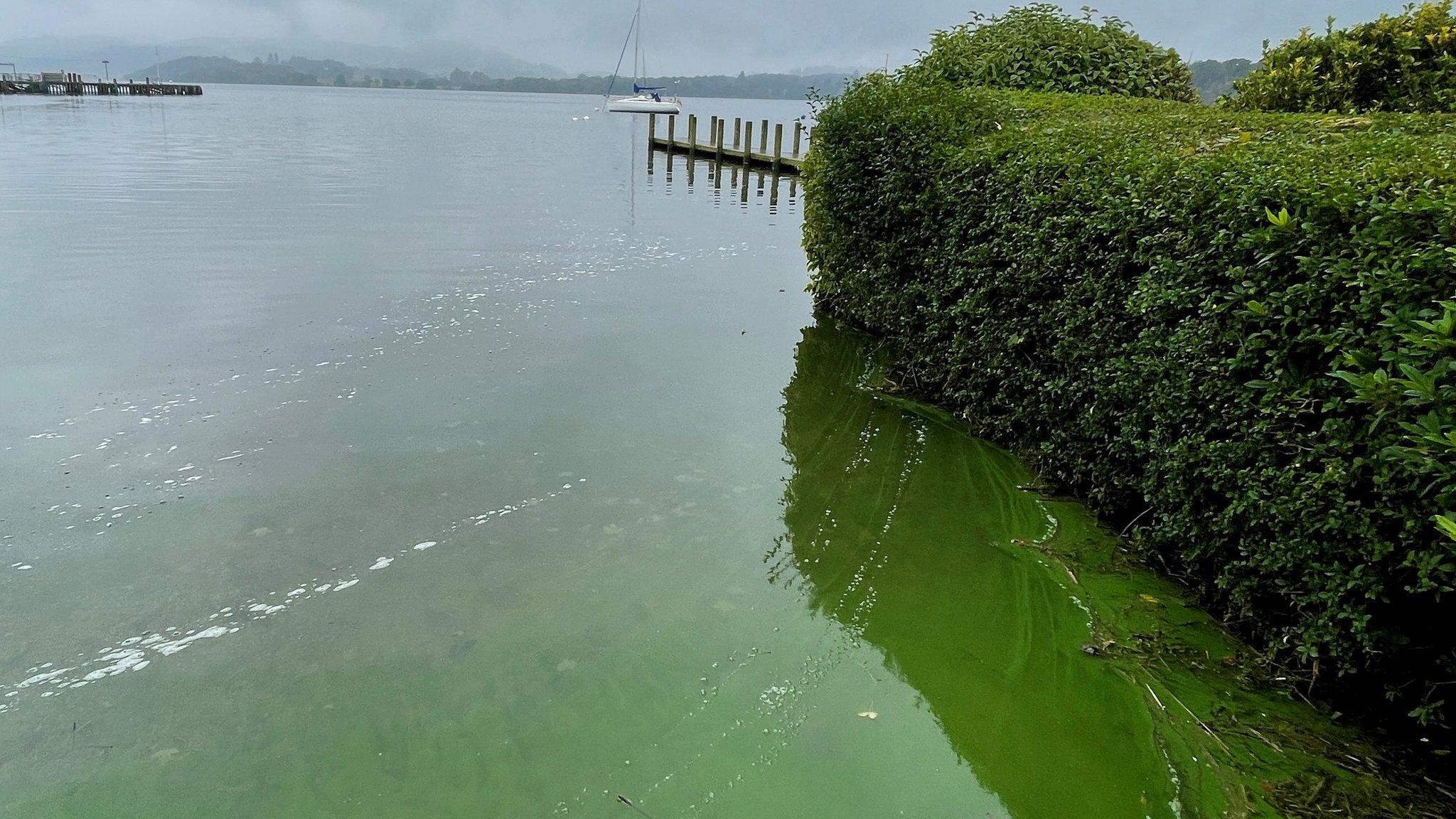Windermere: Algae warning over fish deaths at lake
- Published
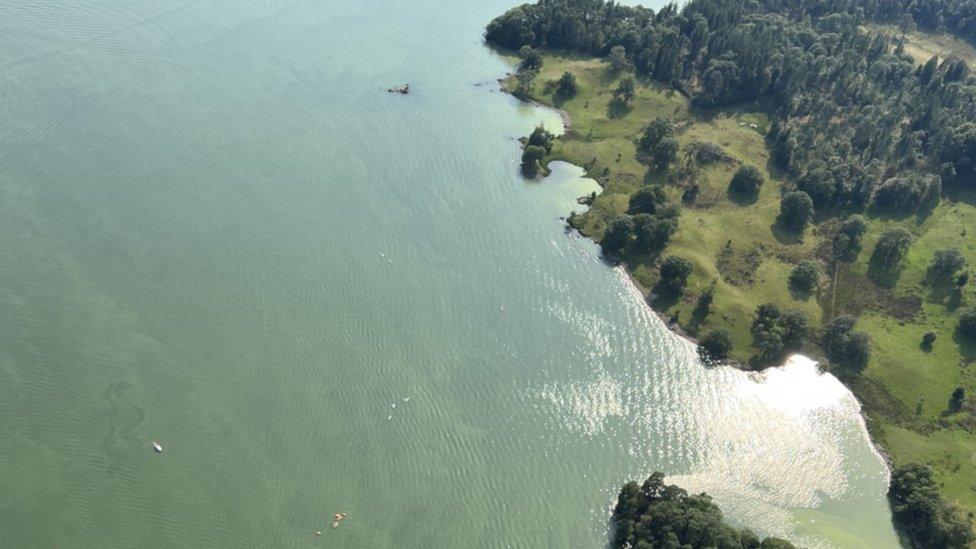
Campaigners believe sewage is to blame for the algal blooms
Harmful algae blooms across the whole of England's largest lake could cause hundreds of thousands of fish to die, a zoologist has warned.
Matt Staniek said Windermere, in the Lake District, was "horrendous" and had turned a "horrible" green colour.
The blue-green blooms can make humans ill and can be fatal to animals.
Richard Leafe, from the Love Windermere Partnership, said warnings of mass deaths of fish were "slightly over-egging the issue".
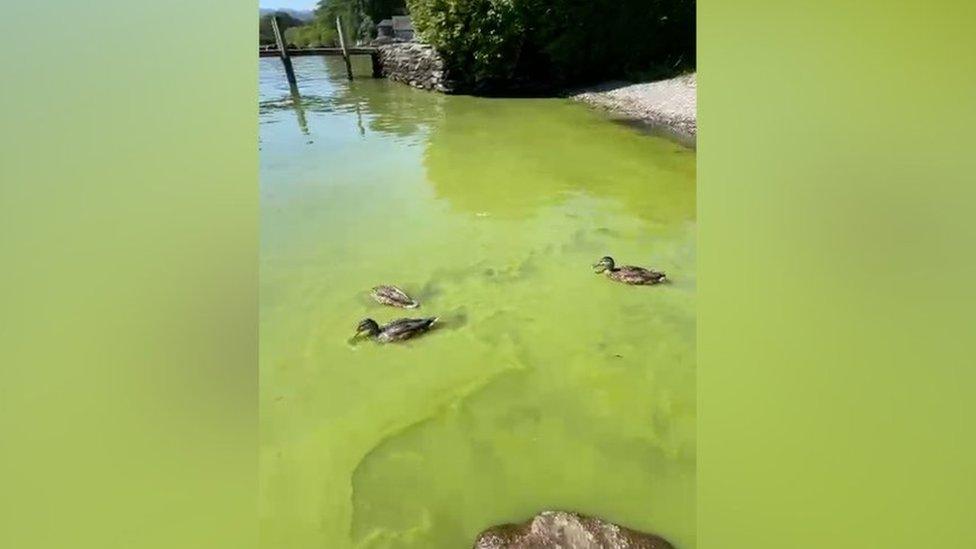
The blue-green algae can be harmful to people, pets and fish
Mr Staniek said: "It looks just like pea soup. [The algae] is bigger than I've ever seen before. And as far as I'm aware, it's the biggest that's ever been seen on Windermere.
"And the problem with it is that when it's at this extent, it depletes the amount of oxygen within the water, which subsequently puts all of the fish that live in Windermere at risk of being starved of oxygen.
"And as a result of that, we could potentially see a mass death of hundreds of thousands of fish."
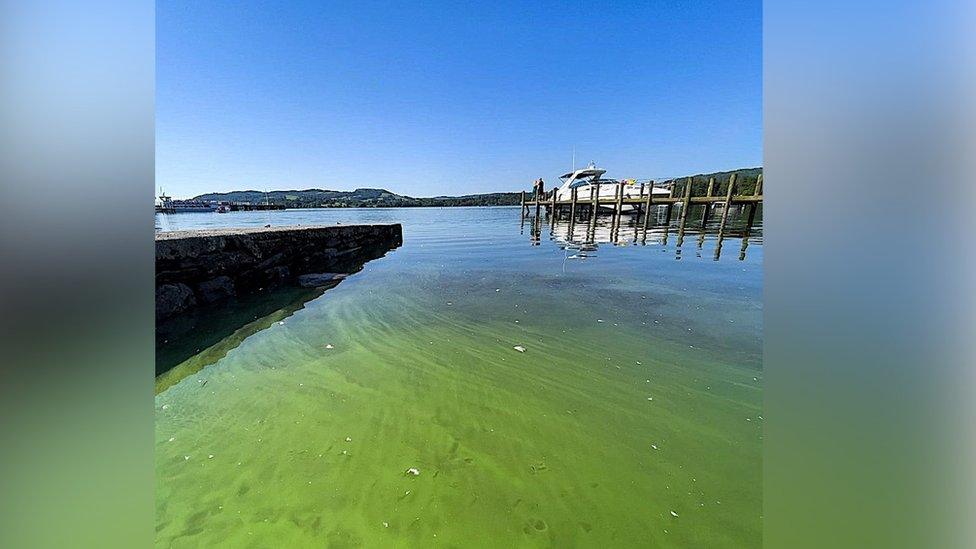
Photos from the water's edge show how discoloured it is
Mr Staniek said he believed the evidence pointed to sewage being pumped from waste water treatment works.
Richard Leafe, chief executive of the Lake District National Park Authority, who can also speak on behalf of the Love Windermere Partnership, told BBC Radio 4's Today programme the algae was caused by "not just sewage".
"At this time of the year we quite often get these naturally-occurring algal blooms, so in a sense there's nothing unusual about this," he said.
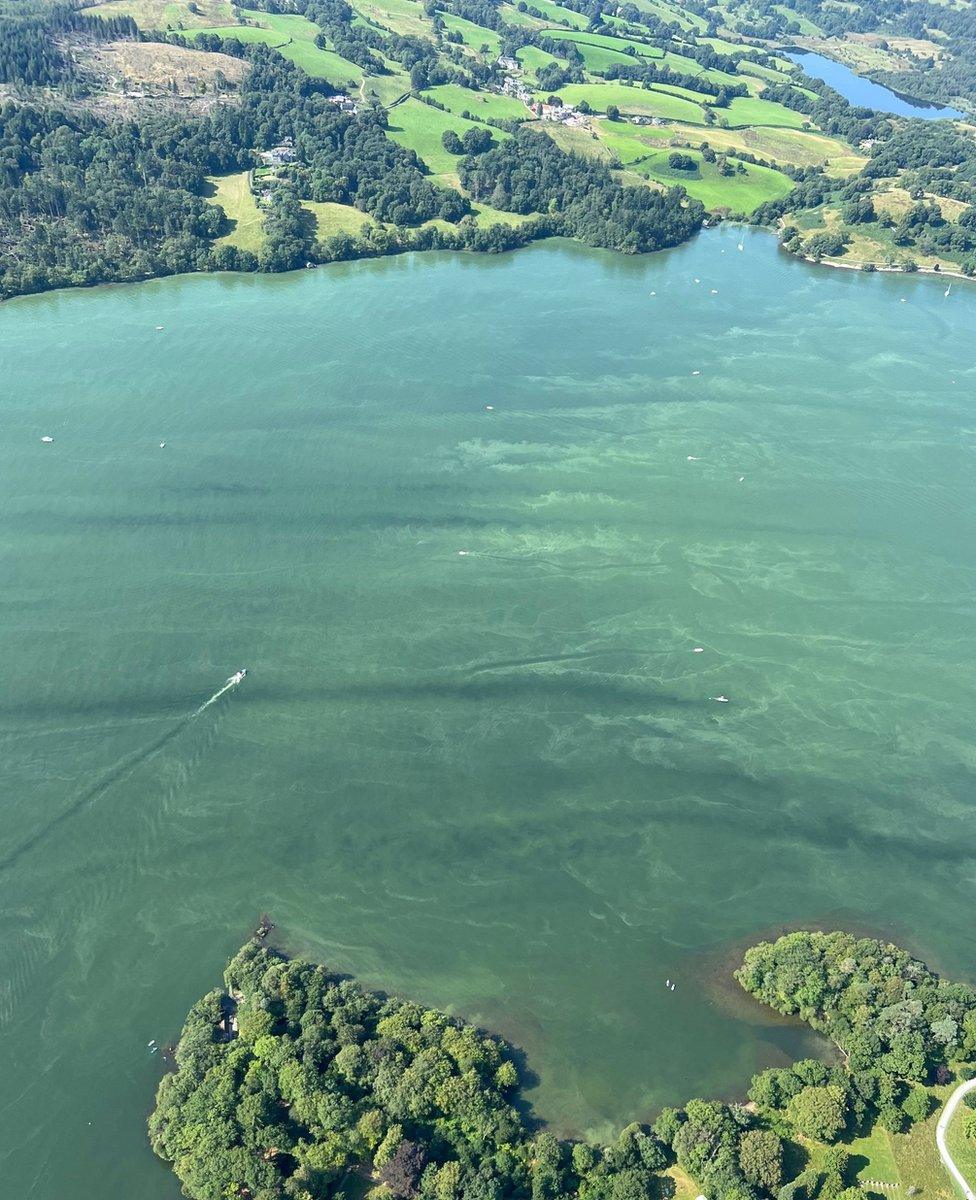
This image taken of Windermere on Sunday shows the extent of the algal bloom spread, Mr Staniek says
He said he recognised there was "a problem, particularly in Windermere" and said the algae was down to "direct sewage which occasionally comes into the lake", septic tanks and nutrient pollution.
Mr Staniek later pushed back on the claim sewage was discharged occasionally, external, saying there had been more than 5,000 hours of storm overflow discharge in the Windermere area last year.
Mr Leafe said: "We've been working on this for many years now and doing our best to reduce all those sources of inputs, but when you get these kinds of weather conditions you will get these blooms."
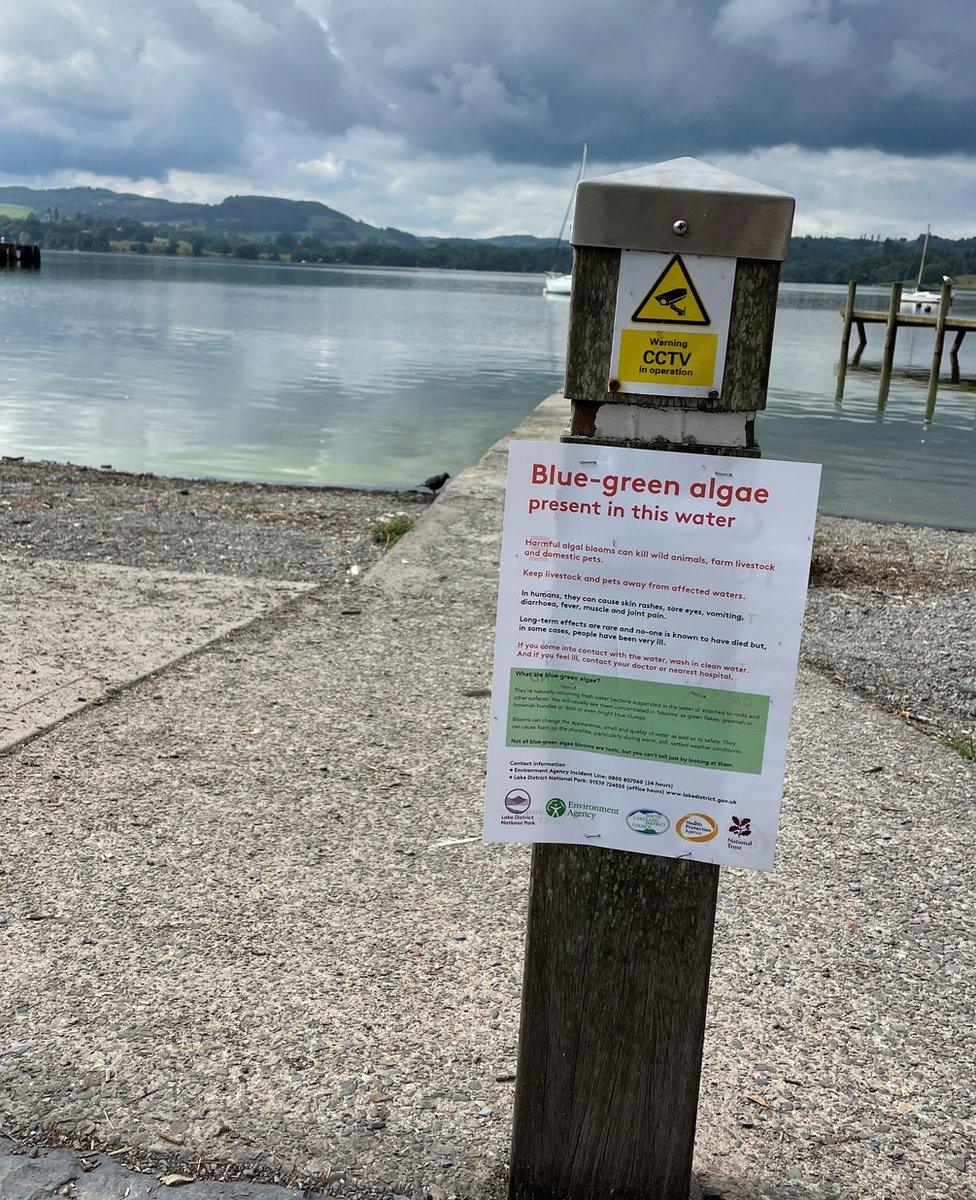
Notices warning of blue-green algae have been posted at the water's edge
He added it was "made worse" by climate change, saying surface waters had increased by about 1.7C in the past decade.
He said warnings of mass deaths of fish were "slightly over-egging the issue", and he hoped the algae would break up as temperatures cooled and more rain fell.
He said it created a "difficult situation" for fish, but Windermere was 11 miles long and very deep so "I hope somewhere in the lake fish will be able to find oxygenated conditions to allow them to survive".
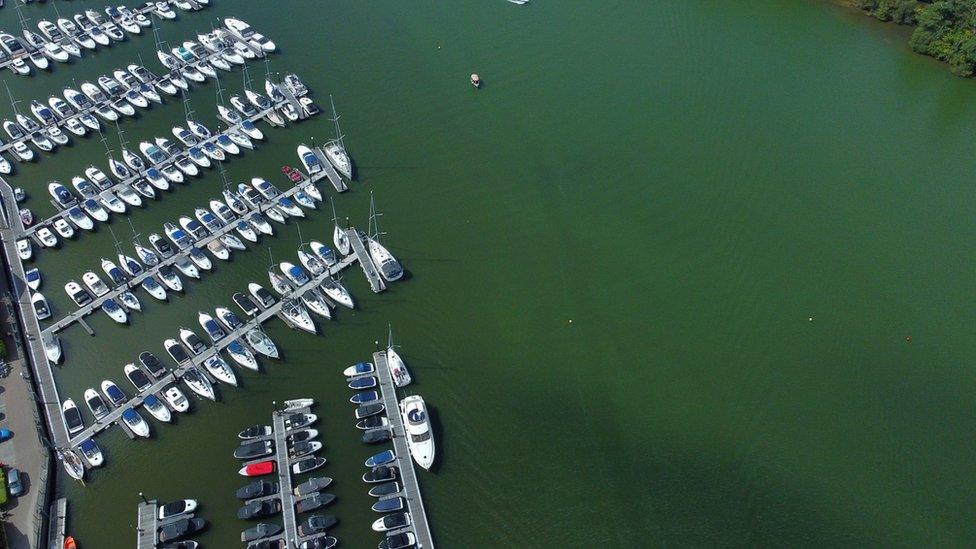
The algae creates a "difficult situation" for fish, Richard Leafe said
Tim Farron, Liberal Democrat MP for Westmorland and Lonsdale, has previously said there was "no doubt" action was needed as the water company was "not doing enough to clean up their act".
The Environment Agency said it had spent more than £700,000 over the past decade to help tackle the problem.

Follow BBC North East & Cumbria on Twitter, external, Facebook, external and Instagram, external. Send your story ideas to northeastandcumbria@bbc.co.uk, external.
- Published17 August 2022
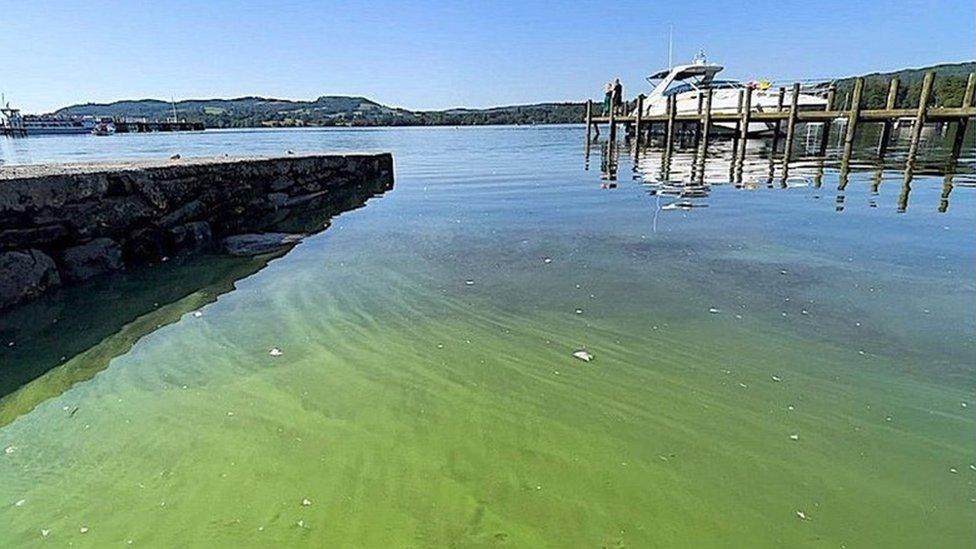
- Published23 June 2022
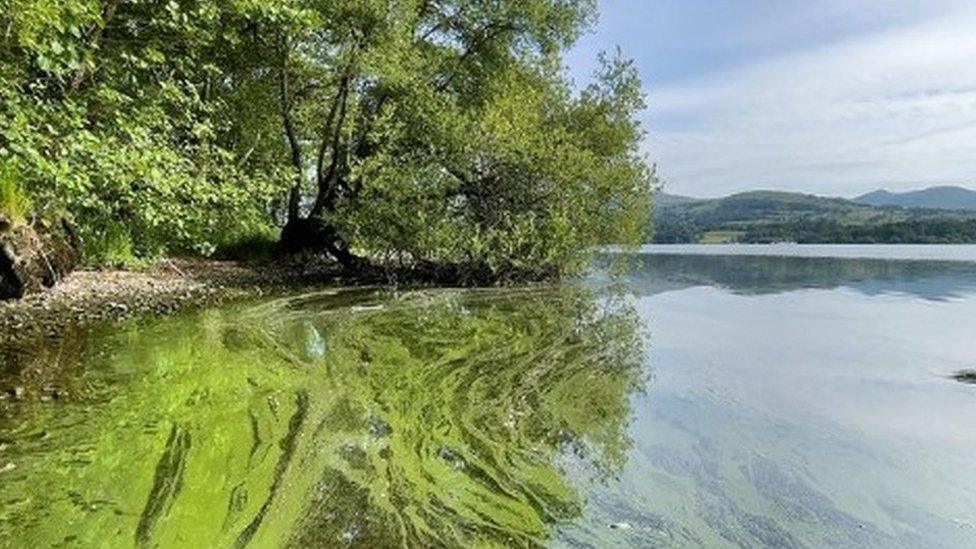
- Published2 December 2021
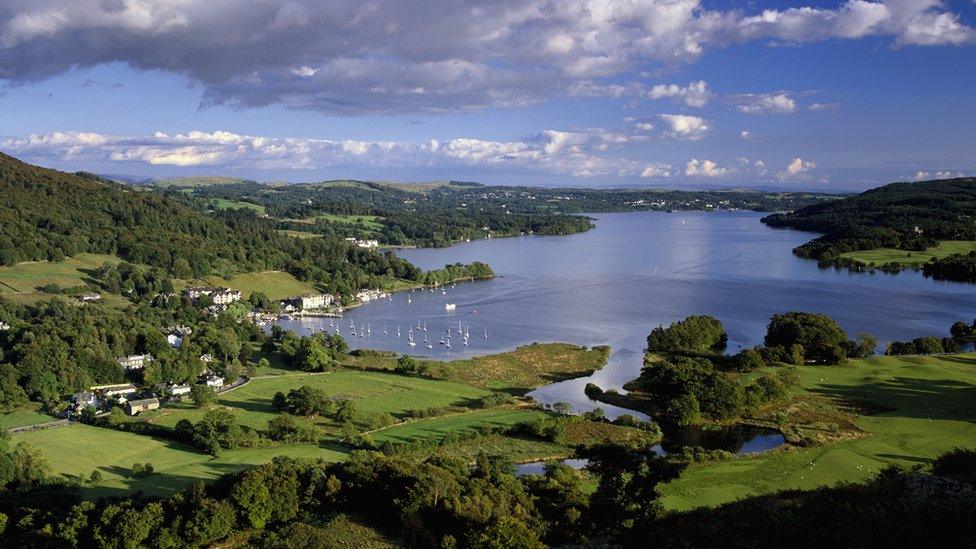
- Published14 October 2021
